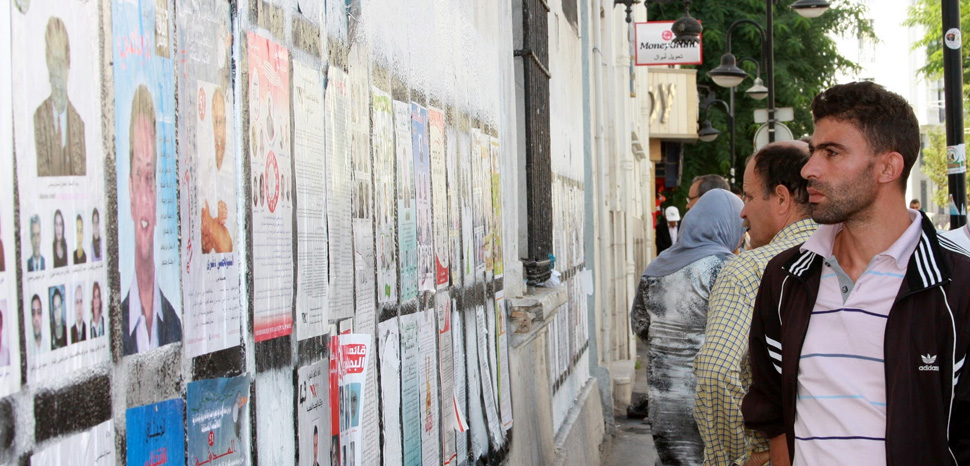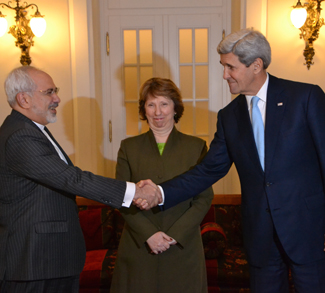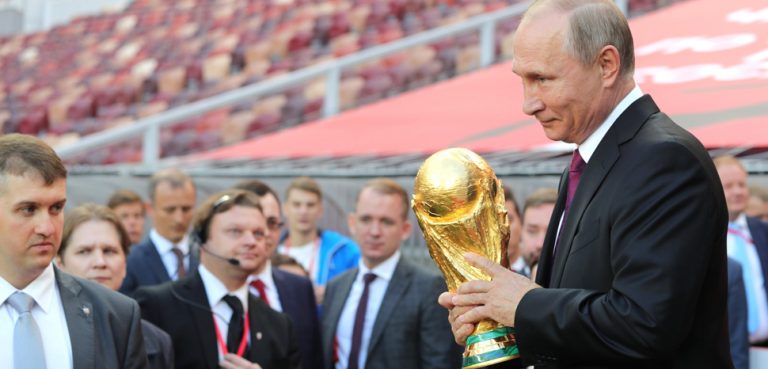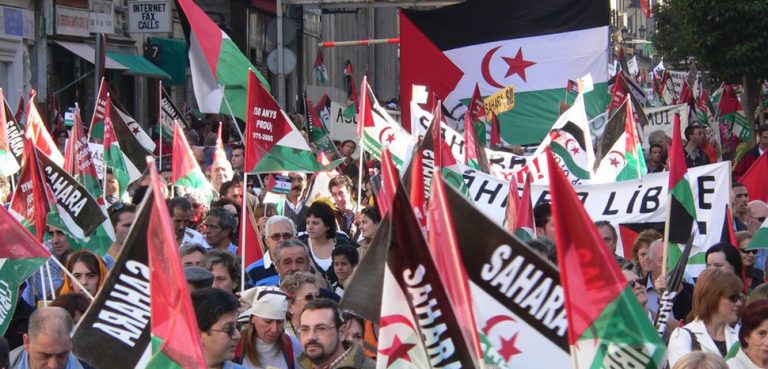The preliminary results in the first round of Tunisia’s general election, placing businessman Nabil Karoui and law professor Kais Saied in the run-off, spells the end of an era for the new democracy. Both political outsiders, their success can be attributed to voter dissatisfaction with the two traditional parties that have run the country since 2011, which have both failed to address rampant economic issues plaguing the country.
Regardless of who wins the second round in October, the current results would represent a seismic shift of power away from traditional forces, and with it, the end of the paradigm of uneasy cooperation that has defined Tunisian politics for the last five years.
The success of Tunisian democracy thus far has been predicated on buy-ins from political leaders across ideological lines and a decentralization of influence over the country’s security apparatus. While the country’s political and security institutions remain corrupt and prone to abusing their power, these instances of malfeasance haven’t coalesced into a coherent power grab on behalf of one group or individual. Guided by the institutional framework of dividing executive functions between the president and prime minister, and buttressed by power-sharing between the secular Nidaa Tunis and Islamist Ennahda parties, the country has been run on reluctant compromise since the 2013 crisis,
Yet there is a cost to compromise. The constant concessions and bargaining necessary to keep the coalition alive has meant a lack of boldness and vision when it comes to social policy. Tunisia is plagued by high unemployment, a skyrocketing cost of living, and an increasing disillusionment with democracy in the face of a myriad of other socioeconomic woes. Prime Minister Youssef Chahed’s government’s strict adherence to IMF austerity recommendations has also severely limited public spending available to address these concerns, even when political consensus does exist.
Kais Saied’s tentative first-place victory with 19.5% of the vote confirms what some have been speculating: a populist wave in an election, where Karoui is also projected to receive 15.5%. Having run a no-frills campaign bemoaning abuses of power, advocating stricter adherence to the constitution, and taking conservative stances on social issues, Saied appears to have identified a compelling narrative popular amongst the young and highly educated. His agenda of railing against the establishment while protecting democratic institutions, if pursued in earnest, could enable his disenchanted voters to feel heard and invested in the democratic transition without the liabilities of Karoui’s style of populism. Indeed, according to Tunisian research institute Sigma Conseil, 43% of Said’s voters didn’t vote in the last presidential elections, highlighting Saied’s ability to mobilize swaths of the population otherwise apathetic towards politics. Yet while both Saied and Karoui both emerged victorious due to a similar populist trend, Karoui poses several unique problems for Tunisia’s democratic institutions.
Karoui represents the first true test of Tunisia’s vulnerable political arrangement in two ways. The first relates to the nagging issue of corruption, an issue both at the center of his campaign and the subject of the candidate’s current legal troubles. While Karoui is one of two people who could be the next president in Tunisia, he currently sits in jail on charges of tax evasion and money laundering. The charges are viewed by many civil society groups as a cynically selective use of the law to sabotage a highly popular public figure’s political ambitions. If Karoui is found guilty of corruption, he will be unable to become president, which could further aggravate the public crisis of confidence in government institutions. The conundrum is emblematic of larger questions within Tunisian politics about how to curtail corruption when so many old-regime elites enjoy still outsize influence in the country’s private sector. As constitutional expert Jaouhar Ben Mbark noted, Karoui’s corruption charges, however legitimate, must also be viewed as part of a clash between the old-regime business elites and post-revolutionary new elites of which he is a part. How Karoui’s case is concluded will have major implications for how corruption is defined in Tunisia, and will be a test of to what extent old regime business elites are capable of protecting their interests through government institutions.
The second consideration that comes with Karoui’s victory is the long-term impact of a figure with Karoui’s influence in a democratic system with weak institutions, precedents, and unclear avenues for checks and balances. As the owner of Nessma TV, one of North Africa’s most popular television channels, Karoui commands a level of discursive power in popular culture unmatched by any politician in the post-Ben Ali era. Although a strong victory in favor of Karoui could give him a popular mandate to pursue much needed structural reform recently impossible under the previous coalition arrangement, such an outcome would not be without negative consequences. If elected, Karoui would find himself in a position to leverage his control of the media narrative and celebrity as a populist figure to erode vulnerable democratic institutions and processes, and ultimately seize undue amounts of power for himself. Yet it is also important to qualify these risks against premature worries. Tunisia’s civil society remains robust, and highly influential organizations like the UGTT (Tunisia’s largest union) and lawyer’s guilds have demonstrated a consistent ability to mobilize effectively, particularly in the last year and a half. While Karoui could potentially become the most powerful Tunisian politician since the 2011 revolution, it’s hard to imagine a scenario of total authoritarian backsliding without a major cooptation of civil society and considerable buy-in from the security services.
Karoui and Saied both effectively tapped into a popular resentment and feelings of economic precarity amongst a majority of Tunisians. Yet their brands of populism each have very different implications for the future of Tunisia’s democracy. The next several months will likely be dramatic, as the outcome of Karoui’s case and its ancillary developments will remain at the center of the run-off. Another consequential element will be the role of the defeated albeit still powerful candidates and their voters, with Ennahda’s Abdelfattah Mourou having received 11% of the vote, Prime Minister Yousef Chahed receiving about 8%, and former defense minister Abdelkarimk Zbidi taking 10%. How effectively the two populists are able to cater to them will be a deciding factor, and Karoui’s rocky relationship with Islamists may not help. Nevertheless, Karoui’s campaign strategy of continuing to highlight his generosity towards the poor may prove more essential than ideology in such dire economic circumstances. Saied will inevitably be forced to shift away from his quiet campaigning strategy, which will likely reveal how he hopes to constitute his voter base in relation to Karoui. However, if he cannot expand his appeal beyond what Mohammad Hammami calls “the educated, but powerless elite,” he will struggle to overtake Karoui with his strong appeal amongst the working class. While much remains unclear about the full implications of these results, how Tunisian civil society and elites negotiate their roles in relation to the new populist forces that have emerged in this election will ultimately be what decides the outcome.
The views expressed in this article are those of the author alone and do not necessarily reflect Geopoliticalmonitor.com or any institutions with which the author is associated.




